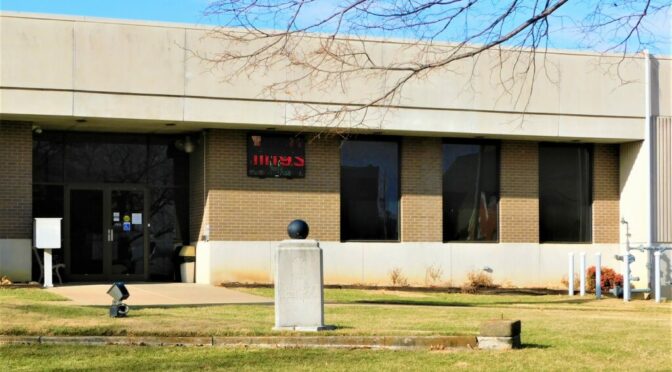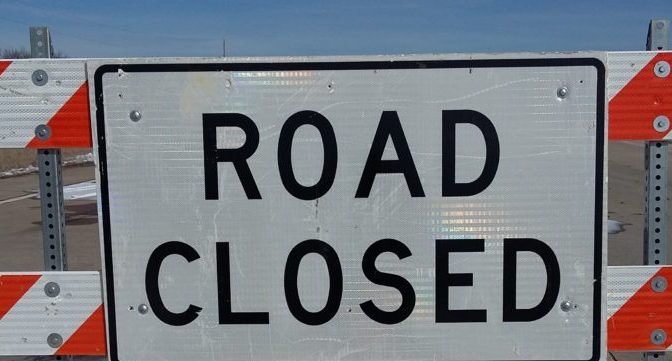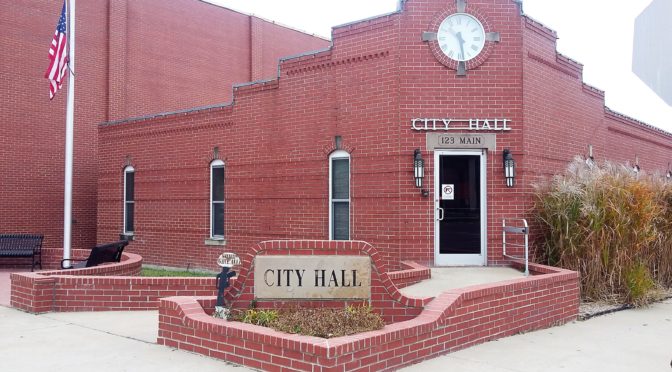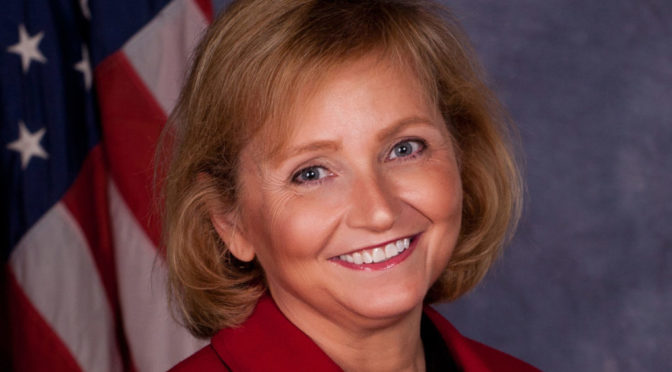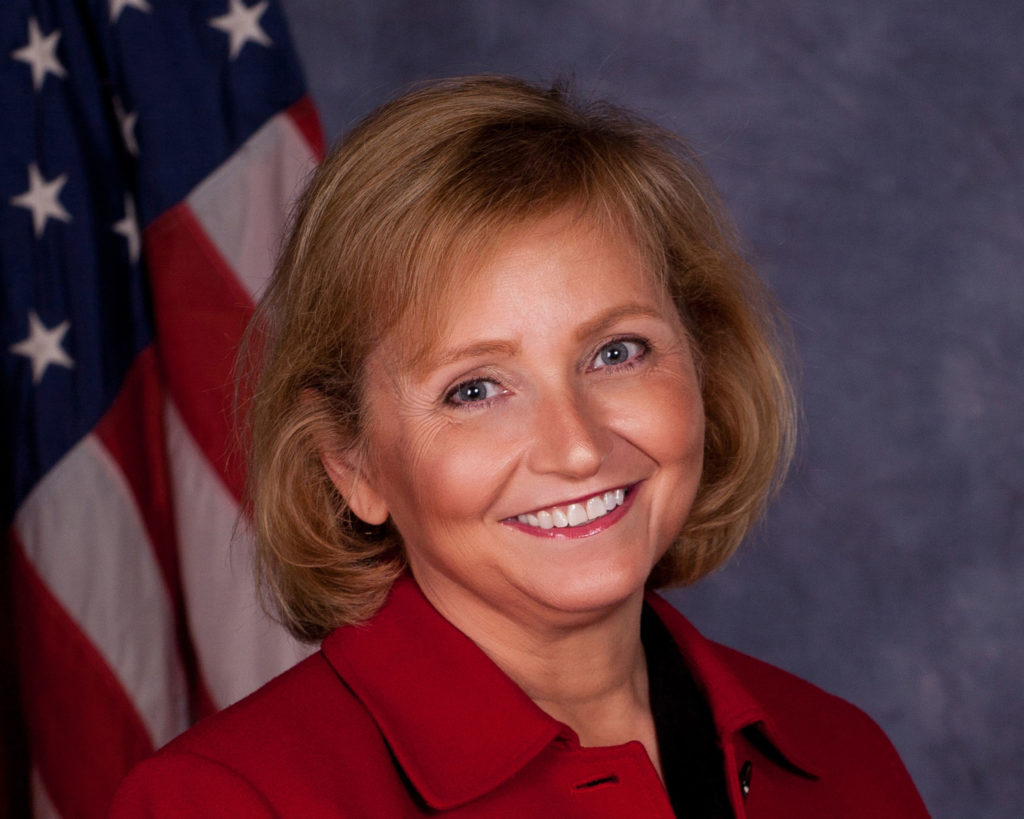April 24, 2023 Monday, 5:30 p.m.
The Bourbon County Commission met in open session with all three Commissioners and the County Clerk present.
Jason Silvers, Clint Walker, Anne Dare, Deb McCoy, Michael Hoyt, and Mary Pemberton were present for some or all of the meeting.
Jim Harris opened the meeting with the flag salute followed by a prayer led by Nelson Blythe.
Jim welcomed everyone to the night meeting and said he hopes the night meetings will allow more people to attend.
Clifton Beth made a motion to approve the consent agenda which includes approval of minutes from last week. Nelson Blythe seconded, and all approved.
Eric Bailey, Public Works Director, gave an update on the milling project on Soldier Road and 245th Street stating it is done and they are ready for overlay. Eric told Nelson they don’t have any update on a timeline for milling Yale Road, but that he would let him and the public know when they have a time frame. Eric said they have been waiting on bolts for the engine for the laydown machine and were given a July time frame last week: however, the bolts got here today, and the machine should be ready next week. Jim said that is great news and that Mr. Foley might have had something to do with that. Eric said the KDHE district office inspected the landfill and we passed with flying colors. KDHE recommended having a sign at the front saying what materials are to be placed in MSW and C&D and then a sign at each drop off area within the landfill. Eric said kudos to all at the landfill they have worked very hard to get the landfill cleaned up. Eric stated the landfill is very busy due to more out of state and out of county businesses starting to use our facility. Jim commended the landfill personnel stating they do a great job. Eric said the state was also pleased with the bean pad and the progress we are making on it. Eric said it had been a busy Monday with Dustin Hall attending the KDOT meeting in Chanute for bicycle trails and sidewalks and Chad Brown overseeing the blast at the Beth Quarry. There were some technical difficulties with the blast company’s truck, but they will be back tomorrow to finish up. Eric said they have been patching on 215th Street and Hackberry Road as well. Michael Hoyt said he would still like to look at the bridge on Poplar Road and will get with Eric to set up a time to meet.
Sheriff Bill Martin presented retirement paperwork for K-9 Mozzi who will be purchased by Deputy Pritchett. Jim said it is great that Deputy Pritchett will give the dog a home. Nelson made a motion to transfer ownership of K-9 Mozzi from Bourbon County to Deputy Pritchett and to allow Chairman Harris to sign the agreement. Clifton seconded the motion, and all approved.
Mary Pemberton said she was here three months ago asking for the classification of a certain employee to determine if they were a Bourbon County employee or a contract worker. Mary stated she was told the person in question was an employee, but they were being paid as a 1099 worker. Mary asked if this individual was still working under the same contract as last year, and Jim stated yes. Mary questioned why the individual was paid with a 1099 instead of a W2 since she was informed they were an employee. Clifton stated he does not recall stating this person was an employee who would receive a W2. Mary stated this person is an employee who receives vacation and extra benefits. Justin Meeks clarified that he receives no vacation or benefits and that he even buys his own ink and paper. Justin said he would love to be an employee and receive vacation and benefits. Clifton stated that would cost the county $20,000 more per year to make him an employee. Justin stated he and Clifton had both contacted outside counsel who agreed with his status of 1099 contract employment. Mary said the contract previously read vacation time and professional development. Justin stated in the contract it says he can miss up to four meetings per year and that he is allocated $750.00 per year for professional development meetings. Justin said this should be discussed in an executive session because he is protected under certain guidelines, and he recently clarified this with the EOC. Jim said this conversation is over and told Mary if she would like to continue the conversation they could do so in executive session. Jim stated that he would not allow individuals to be identified in open session and would shut the meeting down if that were to continue to happen. Nelson asked Mary if she would like to go into executive session and she declined.
Michael Hoyt said he would like documents that are presented in meetings to be distributed to the individuals attending. Mr. Hoyt stated he would like to be read in especially during the budget process and gave an example of a budget calendar that was handed to the Commissioners last week but not to those sitting in attendance. Clifton stated that worksheet was not for the public but was a blank worksheet for department heads to fill out for the budget process. Nelson stated that if documents can be legally shared with the public during the meetings we should do so. Mr. Hoyt said last week Matthew Wells came to the Commission for a 25% buy in for a project that the City of Fort Scott is willing to allocate 75% of the funding for whether that is from a grant, city funds, loan, or fundraising and says he feels that should have been a “no-brainer”. Nelson said he totally disagrees and does want to spend $37,500 of taxpayer dollars on what is basically a giant sunblock. Jim said there is no problem with looking at the presentation for a few weeks. Mr. Hoyt said he had a problem with Jim “keeping score” referring to a comment Jim made last week about waiting for an opportunity to speak of a former city commissioner not wanting to help fund the Meals on Wheels program. Michael said we want forward thinking not revenge governance. Jim said he was offended that the city commissioner would not help feed the elderly and that he wanted the public to know that. Jim stated that it is not revenge governance that is Michael’s opinion only, not fact.
Clint Walker said he had been in government for many years and that if he finds something he doesn’t like he is going to come in and let his commissioner know his thoughts. Clint said that people can talk about not liking a regulation, but that if you don’t like it to do something about it.
Anne Dare said, in her opinion, she appreciates the commissioners moving forward serving the underprivileged and unnoticed. Anne stated she appreciates the commissioners holding off and reviewing the documents Matthew Wells presented. Anne also said there are a lot of great projects happening in our community and a majority have worked hard fundraising and that is what she thinks should happen with the farmer’s market pavilion.
Jim clarified his earlier comment of he would shut the meeting down stating he alone does not have the authority to shut the meeting, but that he would make a motion to end the meeting and that his motion would need a second to end the meeting.
Clifton made a motion to go into a 20-minute executive session under KSA 75-4319 (b)(1) to discuss personnel matters of individual nonelected personnel to protect their privacy to include the three commissioners and Justin Meeks and will return at 6:17. Nelson seconded the motion, and all approved. Clifton made a motion to resume normal session at 6:17 with no action. Nelson seconded the motion, and all approved.
Clifton stated he has contacted more than one attorney and that Bourbon County is paying our employees and 1099 contractors correctly under the guidelines of the State of Kansas and federal government.
Nelson said he is not an accountant or IRS agent, but we are not intentionally doing anything illegal and that we are always trying to rectify things that might have been done wrong previously.
Jim said that going forward he will be stricter for anyone who identifies any personnel stating that this is not a helpful meeting, but harassment. Jim also said they commission could put a time limit on or end public comment.
Mary Pemberton said that you can ask the IRS directly if a person is 1099 eligible or a W2 employee and that it doesn’t cost anything. Clifton stated he is going to go with the attorney’s advice. Nelson said he has no problem contacting the IRS.
Jim asked the other commissioners what they thought about having the public submit what they are going to talk about. Nelson said a lot of time someone will say something during the meeting and that would spark a public comment so that it might be hard to submit in advance. Michael said the city has a rule that you can’t speak about something that is on the agenda without it being discussed first. Michael stated if you want to silence the people that is a very treacherous road to go down. Jim agreed and said he wants public comments, but that we all need to follow the rules.
Clifton made a motion to adjourn the meeting at 6:24. Nelson seconded the motion, and all approved.
Approved 5-1-2023
THE BOARD OF COMMISSIONERS
OF BOURBON COUNTY, KANSAS
___________________, Chairman
___________________, Commissioner
___________________, Commissioner
ATTEST:
Jennifer Hawkins, Bourbon County Clerk
_______________, Approved Date
